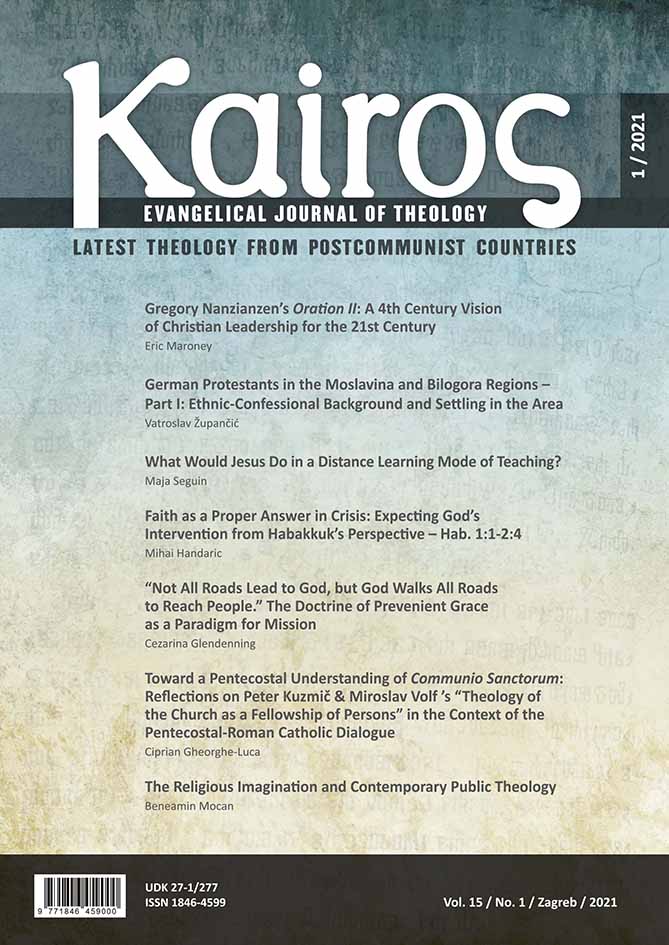Gregory Nanzianzen’s Oration II: A 4th Century Vision of Christian Leadership for the 21st Century
Gregory Nanzianzen’s Oration II: A 4th Century Vision of Christian Leadership for the 21st Century
Author(s): Eric MaroneySubject(s): Christian Theology and Religion, History, Theology and Religion, Philosophy of Religion
Published by: Biblijski institut
Keywords: Gregory Nazianzen; Oration II; Christian Ministry; (Christian) Leadership; Church History;
Summary/Abstract: Leadership styles in southeast Europe tend to lie at the poles along a line stretched between passivity and authoritarianism. This is a universal problem in the global church, not one unique to southeast Europe. However, the fact remains that the mainstream leadership models in this part of the world need to be appraised and healthier models need to be developed. Unfortunately, the leadership models being imported from the West take as their cue business management, oftentimes focusing on efficiency, productivity, and growth rather than focusing on Kingdom expansion and serving the Bride of Christ. However, a model does exist for servant leadership, a model that emerged from the Eastern Church 17 centuries ago. In this paper, I will examine Gregory Nazianzen’s Oration II which presents a spiritual model of leadership for the 21st century. While written many centuries ago, this text is still able to speak to the modern mind and remains relevant for several reasons. First, this is the first extant extra-Biblical account of an individual’s struggle with calling and obedience to Christian ministry. Second, Gregory’s model is saturated with Scripture, providing a sound though unique perspective from his brilliant and highly trained mind. Finally, as one of Gregory’s primary concerns is remaining faithful during a corrupt public form of Christianity, the context is appropriate to the traditional church contexts of southeast Europe. Following a brief historical background, this paper will look at three elements of Christian ministry and how Gregory addresses their spiritual components. First, the roles of a minister, under the titles of priest, king, and prophet. Second, the challenges that beset ministers who seek to serve. And third, the personal struggles that an individual must face and overcome to be obedient in this calling.
Journal: Kairos: Evangelical Journal of Theology
- Issue Year: XV/2021
- Issue No: 1
- Page Range: 7-27
- Page Count: 21
- Language: English

